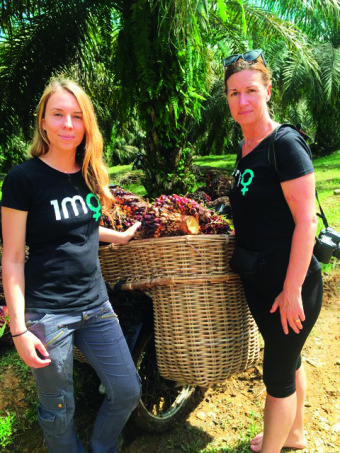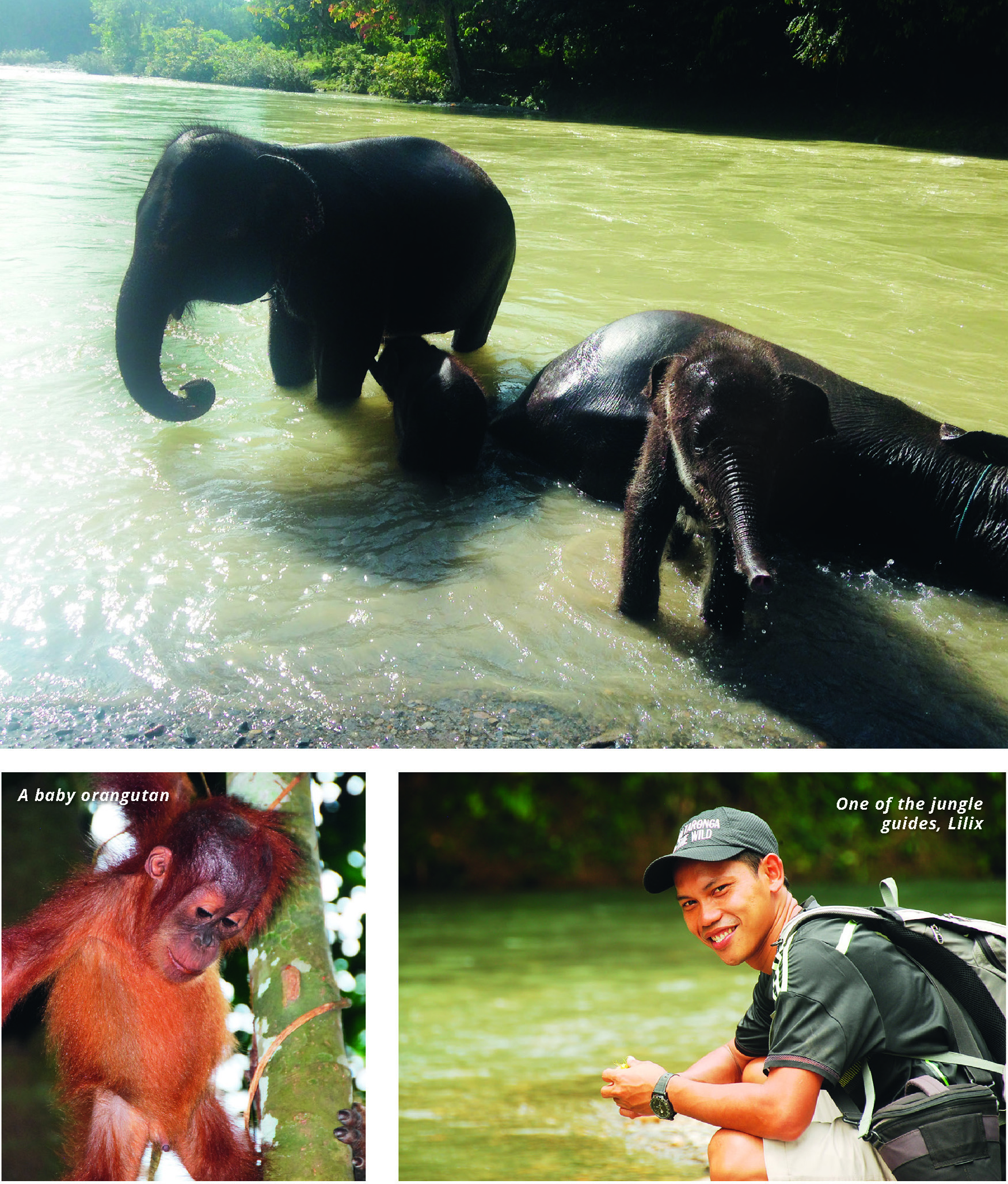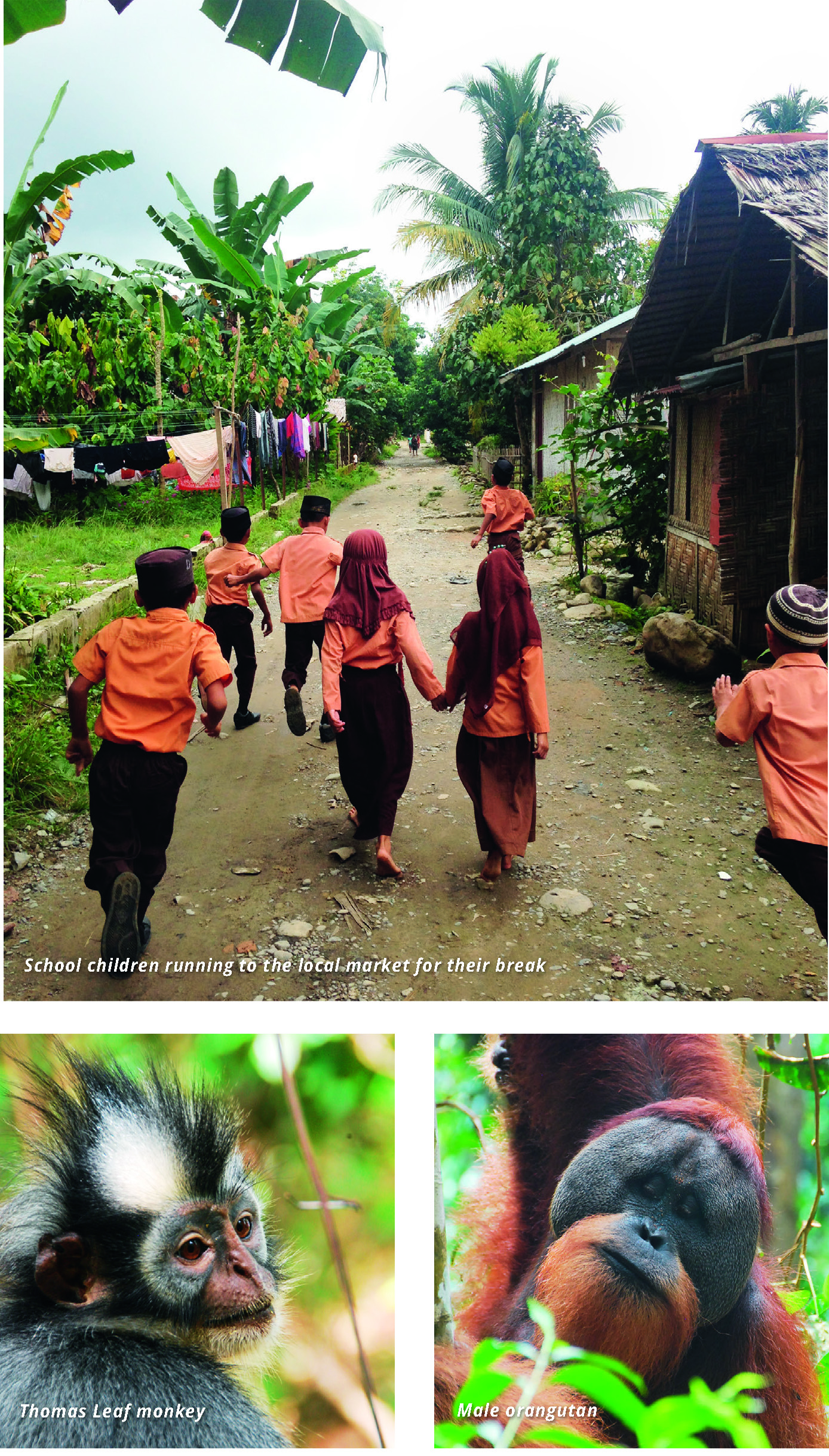Can you cut 1 Tonne of carbon pollution out of your life?
Take the challengeStepping out of the airport in Medan there is no mistaking I’m in Sumatra, the air is thick with humidity and the haze from the recent forest fires still lingers over the city. I’ve come to the Indonesian island with 1 Million Women – an organisation dedicated to two issues we’re passionate about at Australian Ethical – empowering women and addressing climate change. We’ve made this journey to experience first-hand the impacts of palm oil production.
This is a guest blog from our partner Australian Ethical Super written by: Ella Mckinley
The problem with palm oil
Our visit is timely as recent months have seen hundreds of fires illegally lit to clear land to make way for palm oil plantations. These fires are accelerating climate change by spewing out carbon emissions and removing carbon absorbing forest 'sinks'. Over a billion tonnes of carbon emissions were released by the fires in 2015 – more than the annual emissions of Germany. Clearing land for plantations is also removing the last remaining habitat for endangered orangutans, tigers, rhinos, and elephants.
Beyond the environmental impacts we also hear that the wealth promised to the local communities in the plantations has never materialised. This sentiment is echoed in the basic bamboo huts we see bordering the plantations, many without power.
I feel complicit in the destruction; all of us on the trip have admitted to unconsciously purchasing products containing palm oil. Although often unlabelled, palm oil is in about half of all the packaged products on supermarket shelves. At some stage, all of us have added fuel to the fires through our consumption of palm oil.
The question is, why has palm oil expansion occurred in such a destructive way, eradicating rich ecosystems and entire communities? With law enforcement eroded by politics and corruption, palm oil companies have largely failed to bear responsibility for the consequences of their product. This disregard has enabled companies to increase short-term profits at the expense of a sustainable future. Most of the locals we talk to are unaware that most of the money from the plantations goes offshore. Despite Indonesia producing over 50% of the world's palm oil, only three of the world's 25 largest palm oil companies are based in the country, and even then, profits rarely get filtered through to the poorer communities

1MW CEO Tara Hunt & Ella with palm oil fruits.
It's not clear to me what the solution is. As with many of the ethical issues we examine at Australian Ethical this is a complex problem. The alternatives to palm oil such as animal fats and vegetable oils also have concerning impacts.
One step in the right direction is sustainable palm oil certification. While many of the largest users like Unilever and Nestlé are now purchasing certified palm oil, demand for certified product remains low. Unfortunately around half of certified palm oil currently has to be sold as 'normal' palm oil because there aren't enough buyers for the certified product. This sends a clear message to palm oil producers that consumers and food and goods manufacturers aren't serious about paying a premium for better social and environmental outcomes. As consumers and investors we clearly need to do more.
We don't invest in any palm oil production companies. We also go further and look for evidence of responsible sourcing through the supply chains of all companies. We invest in Trilogy who can confirm that their natural skincare products and Ecoya candles only use certified sustainable palm oil.
Thanks to our members we've also been able to fund projects to protect endangered wildlife in Southeast Asia that are being threatened by habitat destruction. In 2015, Australian Ethical committed to funding The Orangutan Projectin Sumatra for the third year in a row, as well as new funding for Wildlife Asia in Aceh and With Compassion & Soul in Borneo, through our Community Grants program. You can read more about the Community Grant projects here.
In addition, we're supporting 1 Million Women with a palm oil labeling campaign to be launched in 2016

Despite the difficulties we witness on our trip, the main memories I'll take with me of Sumatra are uplifting. I'm hopeful that change is possible. I'm inspired by the local visionaries we've met who are determined to lead positive change, and humbled by the breath-taking beauty of the jungle and its incredible wildlife.
How you can support better palm oil production
- Download the Palm Oil Investigations app, which has a handy barcode scanner so you can find out if palm oil is in any products. You can also find loads more info on the Palm Oil Investigations website.
- Engage in armchair activism: write to brands that use palm oil, and ask them to switch to responsibly-sourced products.
- Learn a few of the common names for palm oil listed on labels. Find out some of the most common names by reading our 8 step guide to easing the palm oil problem.
- Choose responsibly sourced paper. To make way for palm plantations, tropical forests in Indonesia and Malaysia are being illegally cleared at a rate of about six football fields every minute. Worldwide there's a huge demand for pulp and paper – which has been linked to illegal deforestation for palm plantations.

Photos by Ella Mckinley & Lilix Soecipto
Read Next: Palm oil, Climate change and a trek to make a difference
1 Million Women is more than our name, it's our goal! We're building a movement of strong, inspirational women acting on climate change by leading low-carbon lives. To make sure that our message has an impact, we need more women adding their voice. We need to be louder. Joining us online means your voice and actions can be counted. We need you.
